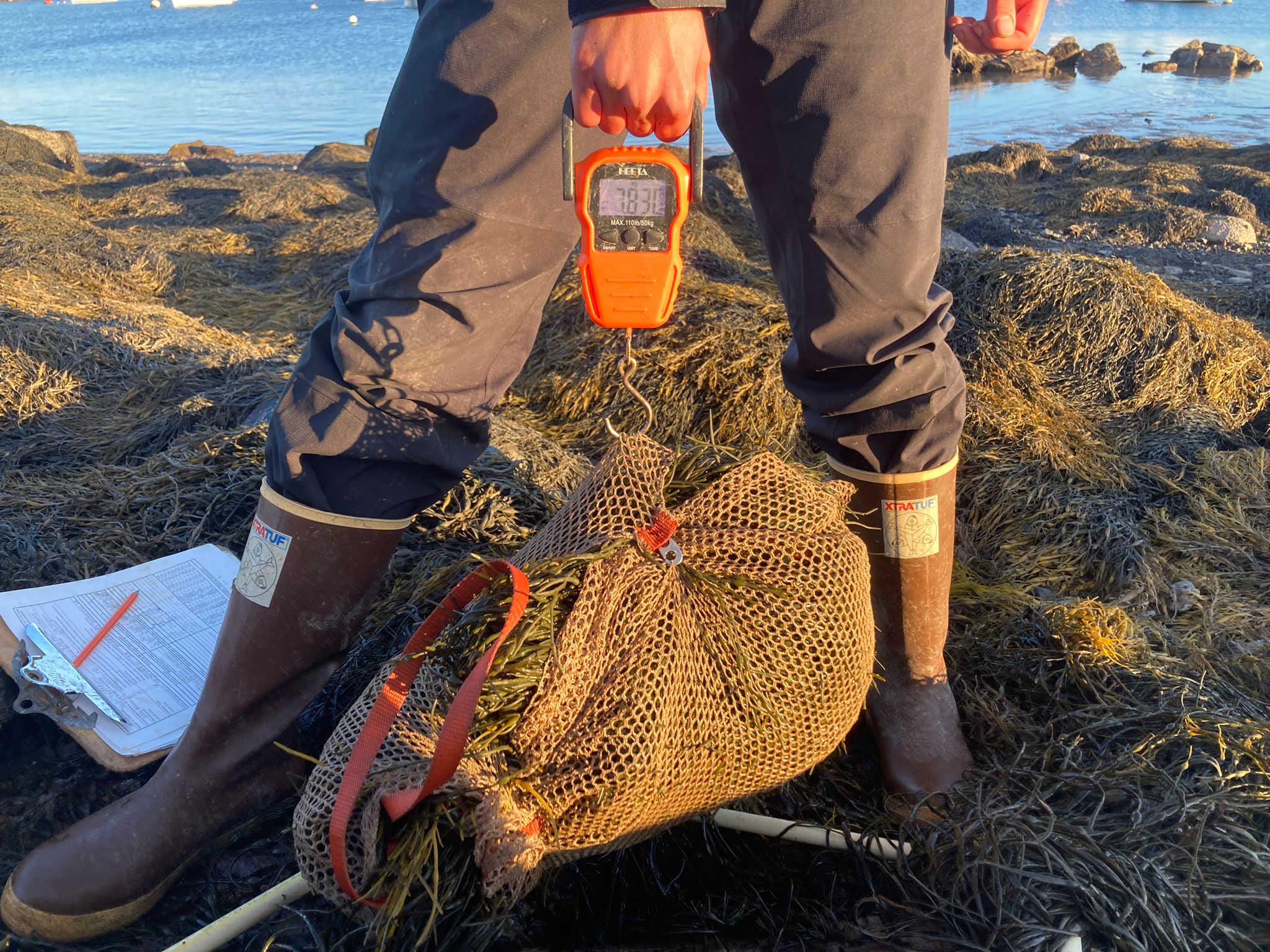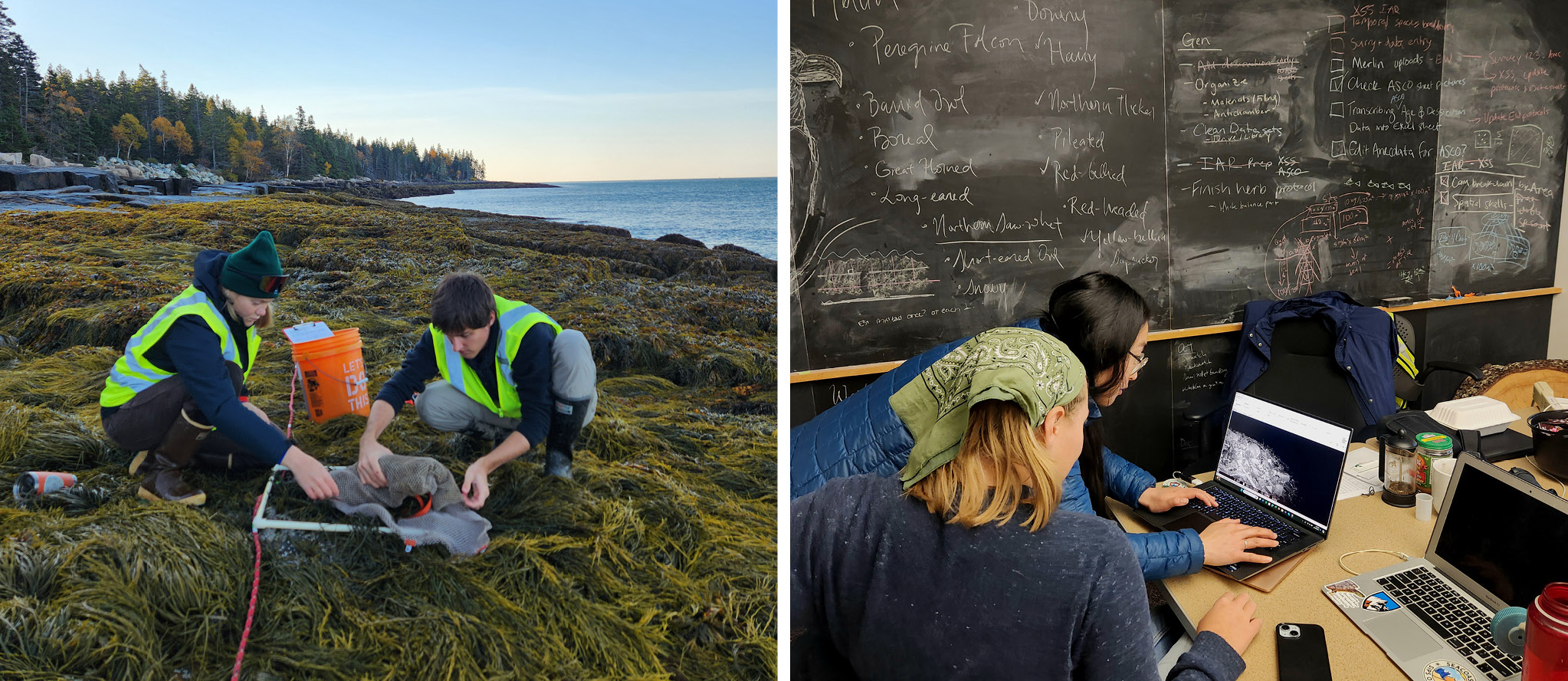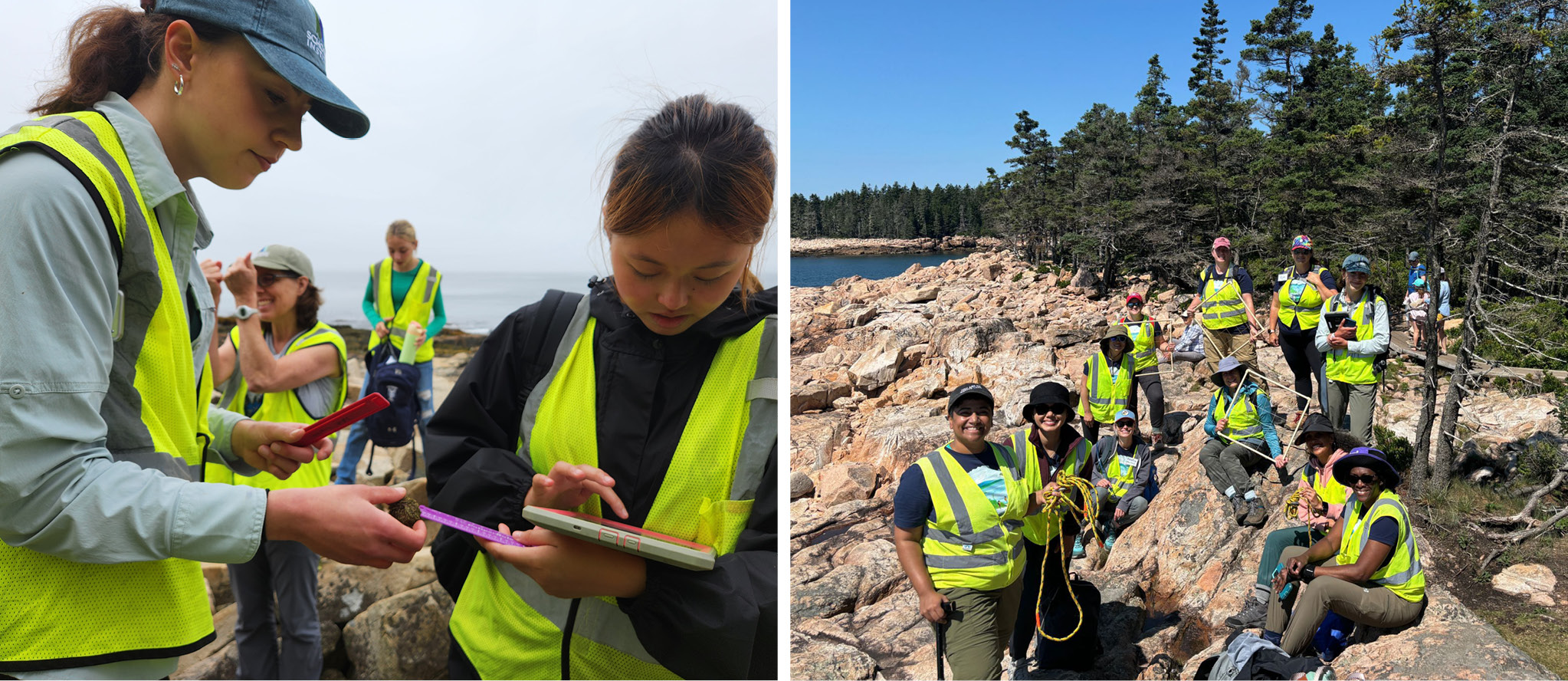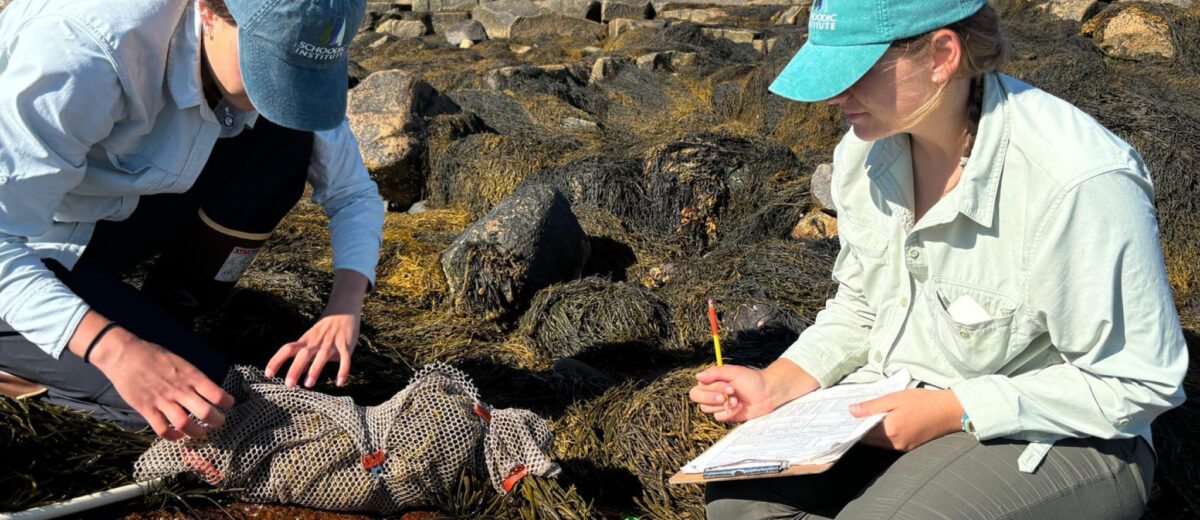by Natalia Portales
We are sifting through rockweed like combing through hair, trying to find the holdfast, where the seaweed is attached to the rocky shoreline. This clump of rockweed seems to have no end or beginning. It’s a tangled mess! But finally, we find the holdfast. We measure the length of the fronds, one person holding the tape measure to the holdfast while the other pulls the tape along the frond to measure its full length. We count the bladders (air pocket bubbles along the frond) to age it. Then, one person lifts the rockweed mass as the other lays the mesh bag down underneath it. The rockweed is released and the bottom of the bag clipped and tightened at the base. Then – the best part – we wrap the bag around the rockweed and each secure the three clips creating a “rockweed burrito” for weighing using a fishing scale.
This rockweed burrito, and all of Project ASCO, would not be possible without teamwork (or at least not as easy).

Throughout my life, I’ve experienced being part of teams that have thrived and others that have struggled in academic, extracurricular, and workplace settings – from an ambitious, nationals-winning high school crew team to class group work with poor participation. But through these diverse experiences, I have gained an understanding of what makes a good team and how I can contribute. I’ve learned that for teamwork to be effective, it requires communication, engagement, trust, and open-mindness. And this couldn’t be more true for my experience at Schoodic Institute.
Teamwork has been an integral part of my time here as an ecology field technician. From making rockweed burritos, to developing and testing camera trap protocols, to pressing plants in assembly lines, to developing research questions and contemplating R coding together, teamwork has been an ever-present component of my experience.
Collaborating and working alongside other early-career professionals (ECPs), I’ve been surrounded by people who inspire and motivate me, who support and challenge me, which has allowed me to develop new skills, see things from different perspectives, and grow as a young ecologist. I’ve learned various methods for surveying and monitoring the intertidal zone, which was brand new for me, never having worked in this type of environment before. I’ve become more familiar with this ecosystem through working with my colleagues and the science staff which has allowed me to observe subtle elements in this habitat. For example, together, we might hypothesize why the rockweed fronds are shorter in certain quadrats: Is the site more exposed to storms? Is it related to the stability or composition of the substrate? Could there have been harvesting at this site?

I’ve not only worked toward project goals with my coworkers every day but I’ve also had the opportunity to include volunteers and Earthwatch participants into this shared vision. As ecology field technicians, we work with various Earthwatch teams who visit for a week at a time during which we teach and lead these groups in ecological field research. Groups we have worked with have included urban school teachers, financial consultants, and teenagers. The inclusion of individuals of different backgrounds, personalities, and lived experiences has brought new perspectives and ideas to our science. Earthwatchers drew comparisons with their previous experiences in nature, asked thoughtful questions about the methodology of our projects such as how to capture certain animal behaviors on our camera traps, and suggested strategies on how we could better engage teens. It has been a two-way street in that these groups have also taken back home with them new skills and strategies, such as using participatory science tools like iNaturalist, or learning ways to incorporate field skills into high school lesson plans, or teens discovering a new career path they could take in environmental science.

In this field it can be easy to feel overwhelmed and fatigued by the large and complex environmental issues the world is facing, but each of us has a role to play. Through applying the principles of effective teamwork, through partnership, collaboration, and engagement, there is so much we can accomplish. These same skills apply when working with fellow ECPs to make a weighable rockweed burrito: Being part of a team has allowed me to contribute to something bigger than myself, even if it is in my own small and unique but nevertheless important way.
Banner photo by Suzannah Buzzell
